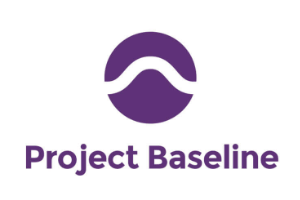The DCRI’s Adrian Hernandez, MD, MHS, and Manesh Patel, MD, will serve as Duke’s representatives to the consortium.
Verily, an Alphabet company, today announced a new Project Baseline initiative, the Baseline Health System Consortium, composed of Verily, Duke University Health System, Vanderbilt University Medical Center, University of Mississippi Medical Center, Mayo Clinic, Regional Health in South Dakota and University of Pittsburgh. The strategic collaboration will identify and develop solutions to significant challenges in clinical research, including making research more accessible and engaging for patients, clinicians, researchers and research sponsors alike.

United by a vision of transforming clinical research, the consortium partners will embark on a pilot in 2019 to analyze existing research programs, and use tools and technology developed through Project Baseline, including the Baseline Platform — an end-to-end evidence generation platform — to make it faster and easier to conduct studies, capture health information in a more efficient way and generate better evidence to support scientific discovery. The consortium partners sit at the nexus of clinical research and clinical care, and are uniquely positioned to help Verily iterate on its technology to bridge the gap between research and care and further precision medicine.
“The clinical research system fails to provide the evidence that patients and clinicians need to make good health and healthcare decisions,” said the DCRI’s Robert Califf, MD, former FDA commissioner and advisor, Verily. “By developing useful tools and approaches, this robust collaboration has the potential to drive more efficient and effective research as we link patients, advocacy groups, clinicians, health systems and researchers.”
Verily launched Project Baseline in 2017 with the Project Baseline Health Study to develop the technology and tools to help researchers create a more comprehensive map of human health. Duke University School of Medicine, a collaborator in the Health Study, will partner with Verily on this next phase. The DCRI’s Adrian Hernandez, MD, MHS, Vice Dean of Duke University School of Medicine and a principal investigator for the Health Study (pictured), is joined by leaders in health research Manesh Patel, MD, Duke University Health System; Russell Rothman, MD, MPP, Vanderbilt University Medical Center; Javed Butler, MD, MPH, MBA, University of Mississippi Medical Center; Veronique L. Roger, MD, MPH, Mayo Clinic; Drew Purdy, MD, Regional Health in South Dakota; and Kathleen McTigue, MD, MPH, MS, University of Pittsburgh, as representatives to the consortium. Robert Harrington, MD, professor and chair of the Department of Medicine at Stanford Medicine, will chair the Steering Committee, building on Stanford Medicine’s role as a partner in the Health Study.

“We’re proud to be part of this group of institutions committed to changing research and creating a more deeply connected community of patients, researchers and clinicians,” Hernandez said. “Part of improving research means that we have to collect better feedback from patients and capture health outside of the four walls of the clinic. The consortium builds on the foundation we’ve created with the Project Baseline Health Study and will help us develop and test tools that could aid our ambitious goal of improving human health.”
“This consortium has a unique opportunity to harness data from past and present research programs, analyze what works and doesn’t work, and use the insights to improve the methodology of clinical research more broadly,” said Harrington of Stanford. “By embracing tools and technology to take research into the modern age, we hope to provide greater value in research to both patients and researchers and maximize what we learn about human health from every clinical and research interaction.”
In founding the consortium and partnering with sophisticated health systems, Verily continues to build a robust research ecosystem, with the goal of delivering modern solutions for faster evidence generation and discovery. In February, Verily announced it was joining forces with the American Heart Association (AHA) on Research Goes Red, a new initiative to engage women in heart health research and discovery. Earlier this month, Verily launched the Project Baseline Heart Biomarker Study, expanding its research into risk factors for heart disease.
Verily launched Project Baseline in 2017 with the goal of transforming clinical research through improved real-world evidence generation and by involving more people and clinicians through accessible and engaging studies. Its first initiative was the Project Baseline Health Study, a longitudinal observational study in partnership with Duke University School of Medicine, Stanford Medicine, Google and the American Heart Association to collect, organize and analyze broad phenotypic health data from a broad cohort of participants over several years. Verily’s interdisciplinary team has also developed the Baseline Platform, an evidence generation platform designed to engage patients and clinicians in research, make it easier and faster to run clinical studies and collect high quality, comprehensive data in the real world. For more information, please visit www.projectbaseline.com.